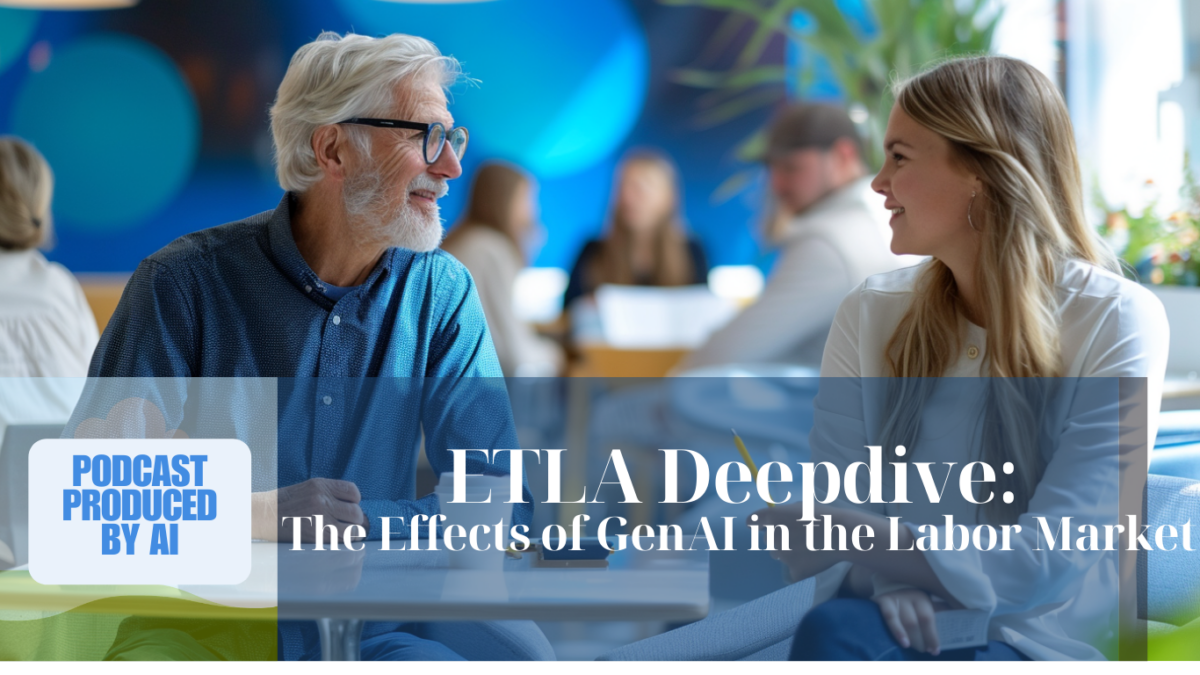
This autumn, ETLA Economic Research will release three new AI podcasts related to our research project “AI in working life”. In these podcasts, ETLA Economic Research will present the results, for example, on the impact of AI on earnings and employment, which occupations are most exposed to AI, and the extent to which AI is already being used in Finnish working life.
This autumn, Etla will publish a three-part podcast series on the impact of artificial intelligence on working life.
These published studies are related to the research project AI in working life and it is sponsored by The Confederation of Finnish Industry and Employers (TT) Foundation. It deals with three main research questions:
The first part of the series is based on Etla’s November 2024 study “The effects of generative AI are not yet visible in the labor market: Wages in the most exposed occupations have rather risen” (Etla Brief 143).
The study is in Finnish but you can also find more information on the results in our Working Paper in English called “Assessing Early Labor Market Effects of Generative AI: Evidence from Population Data” (ETLA Working Papers No 121).
The results show that earnings have increased faster in exposed occupations than in non-exposed occupations. In Finland GenAI has so far not caused any negative labour market effects. The results suggest that GenAI has increased labour productivity and thus labour demand.
Note: This podcast is created with NotebookLM and Clipchamp by ETLA and is therefore AI-assisted.
The second part of the series is based on Etla’s June 2024 study “Does AI displace Work? The Impact of ChatGPT launch on the Demand for Work” (Etla Brief 136). We examine the effects of generative artificial intelligence (GenAI) on the labor market, specifically focusing on the impact of ChatGPT on job demand.
The findings show a slight decrease in openings for substitutable jobs, where GenAI can fully perform tasks without loss of quality. However, there is an increase in demand for augmenting and unaffected jobs, which either benefit from faster task completion due to GenAI assistance or remain unchanged by it.
The data indicates that ChatGPT’s introduction has not uniformly decreased labor demand but rather redistributed it, leading to growth in some sectors and declines in others.
Half of Finns have already tried generative artificial intelligence (AI). Among the employed, thirty percent have used generative artificial intelligence for work purposes.
Generative artificial intelligence has already had a significant impact on leisure and work in Finland.
Although the United States is the leading country in generative artificial intelligence, Finns are more active users than Americans – especially thanks to women. Listen to ETLA Deepdive part 3 to find out more.
The third part of the series is based on Etla’s November 2024 study “Generative Artificial Intelligence: Observations from a Fall 2024 Survey” (Etla Brief 144 ).
All these published studies are related to the research project “AI in working life” and it is sponsored by The Confederation of Finnish Industry and Employers (TT) Foundation.
We thank Finnish Business and Policy Forum EVA for the opportunity to add a module on artificial intelligence to the Fall 2024 edition of EVA’s Values and Attitudes Survey.
Note: These podcasts are created with NotebookLM and Clipchamp by ETLA and are therefore AI-assisted.